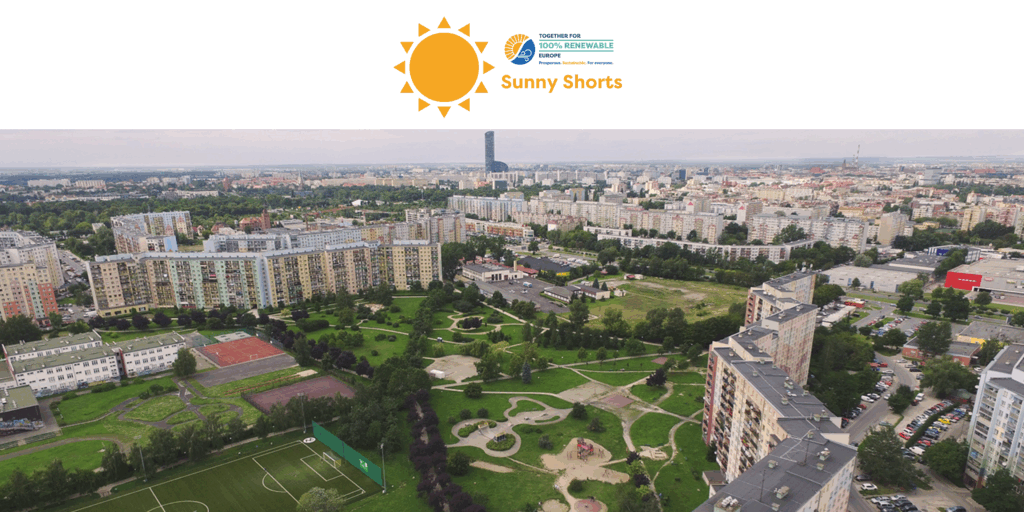
Author: Wojtek Szymalski, Institute for Sustainable Development
Visuals:
https://wroclaw-poludnie.pl/ekologia
Wrocław – the sunny capital of Polish prosumerism
Wrocław has long been working on its reputation as a hub of Polish prosumerism. It set an example of energy independence for local communities and has now been chosen to pilot an unprecedented programme of financial support for energy communities. Are we witnessing a historical moment? Will it unblock the situation of energy communities all across Poland?
Wrocław is the third biggest city in Poland in terms of population and one of the sunniest places in the country due to its southern localisation. It is then no coincidence that it is in Wroclaw that we have a model (and one of the biggest) urban community solar energy project: Wrocław Południe. Running since 2017 by the housing cooperative of the same name, Wrocław Południe is located in the city centre and generates clean energy from over 3,000 panels installed on rooftops of 35 buildings. The panels supply electricity to around 15,000 residents, powering communal infrastructure, including elevators, lighting, and water pumps. This sunny project does not only cut CO2 emissions by 600 tonnes annually, but also reduces the annual shared costs from 90,000 to 18,000 euros per year. And in the face of the cost of living crisis in Europe – these savings are beyond price.
Now, it is time to reproduce this success. It comes as no surprise that it is the Wrocław area that leads an unprecedented pilot programme of support for energy communities initiated by the local Bank of Environmental Protection (BOŚ) and the Provincial Fund for Environmental Protection and Water Management (WFOŚiGW). The project’s aim is to empower energy communities, boost renewable energy and thus increase the energy security of local residents. How? By granting easier access to financing renewable community investments and combining the local development of energy production facilities, including from renewable sources, with the consumption of electricity and heat in local communities.
Poland is still struggling with obstacles preventing it from reaching its full renewable potential. Despite a continuous soar of renewable production, the country still gets 61 percent of its electricity from coal. Citizens remain hostage to this fossil habit, which raises energy bills and blocks a socially just transition. Simultaneously, over the past decade, Poland has experienced a renewable revolution, breaking records of clean energy production: in 2024, wind and solar generated 29.6% of energy, up from 27.3% in 2023 and 13.2% in 2015. This has been accompanied by a rising public support for clean energy 81% in 2023 and counting.
On this backdrop, we clearly see that the Wrocław energy communities are part of a bigger picture – the one of a Polish renewable revolution. If successful and reproduced, the Wrocław pilot project can set a cornerstone for an important development of energy communities all across Poland. And just like the Wrocław Południe – it can grant Poles self-sufficiency, lower costs and energy security.



